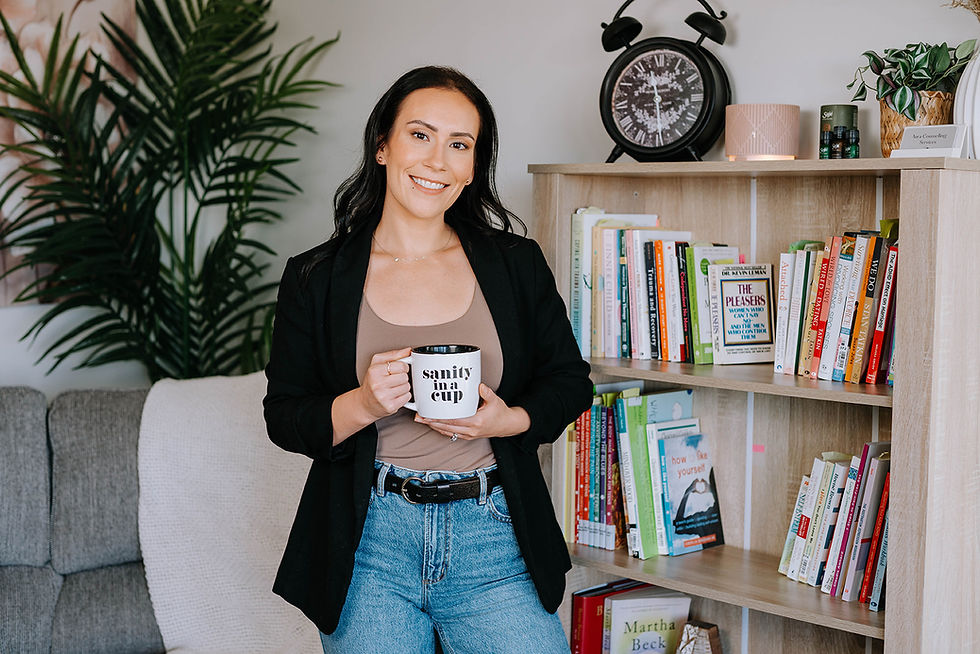Why You Might Feel “Too Much” in Relationships: Insights from Attachment Therapy
- Maryse Hebert

- Nov 18, 2025
- 3 min read
Do you ever find yourself worrying that you’re “too much” for the people you care about: too emotional, too sensitive, too needy? Many people who feel this way have what’s known as an anxious attachment style. This often develops when love, care, or attention felt inconsistent or uncertain at some point in your life.

When you care deeply about someone, the thought of losing that connection can feel unbearable. Even small moments like a delayed text, a quiet tone, or a shift in body language can send waves of panic through you. It might feel as though your mind immediately jumps to, “They don’t care about me,” or “I’m being abandoned.” And even when you know logically that nothing bad has happened, your body reacts as though it has.
This isn’t because you’re dramatic, it’s because your brain is trying to protect you. It’s wired to look for signs of danger, especially emotional danger, and to act fast when it senses a threat. The problem is, your brain doesn’t always know the difference between an actual threat and a perceived one. So even small moments of uncertainty can feel like deep rejection, triggering a rush of fear, sadness, or anger.
When that fear takes over, it can lead you to act in ways that are meant to pull your loved one closer, but sometimes have the opposite effect. You might find yourself saying things like “You don’t love me” or “You don’t care,” repeatedly checking your phone for a reply, withdrawing affection to see if they’ll notice, or becoming angry, distant, or defensive. You might even try to make them jealous, use guilt to get reassurance, or threaten to leave the relationship altogether.
These reactions are called protest behaviors, and they come from a place of deep vulnerability. They’re your nervous system’s way of saying, “Please don’t leave me. I need to know I matter to you.” While understandable, these patterns can unfortunately create more distance, leaving you feeling even more disconnected and alone.
If you have an anxious attachment style, you might also notice other patterns: getting attached very quickly, needing frequent reassurance, or feeling anxious when your partner is busy or distracted. You might use closeness or even sex to feel validated, or find yourself hyperfocused on the relationship: worrying about other people, hobbies, or anything that could take your partner’s attention away from you. Sometimes, you may even push people away before they get the chance to hurt you, just to feel a sense of control.
It’s important to know that none of this means you’re “too much.” These reactions are learned ways of protecting yourself from pain, and at one point, they helped you survive emotionally. But they can be unlearned and replaced with healthier patterns, ones that allow you to feel secure, loved, and at peace in your relationships.
Attachment or relationship therapy can help you understand where these fears come from and how to soothe them with compassion instead of judgment. You can learn to recognize when your attachment system is activated, communicate your needs in ways that feel safe, and begin building the kind of relationships where closeness doesn’t have to come with fear.
You deserve to feel secure, seen, and valued, not “too much.” If you’re ready to begin that journey, we’re here to walk alongside you. Contact us to learn more about how our attachment therapists can support you!
Article written by Maryse Hebert, Registered Psychotherapist and Clinical Director at Aura Counselling Services


Comments